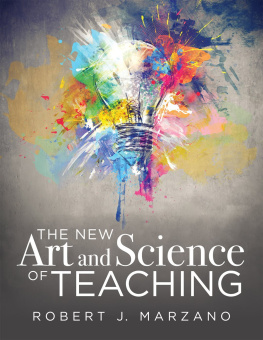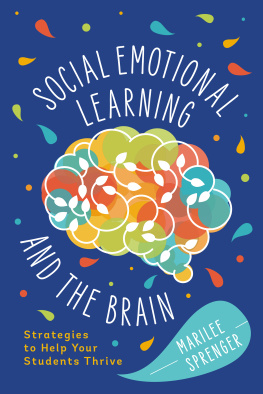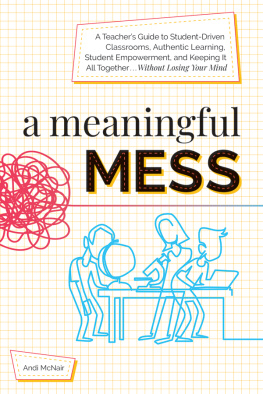cognitive science
a philosophical introduction
Rom Harr
cognitive science
a philosophical introduction

Rom Harr 2002
First published 2002
Apart from any fair dealing for the purposes of research or private study, or criticism or review, as permitted under the Copyright, Designs and Patents Act, 1988, this publication may be reproduced, stored or transmitted in any form, or by any means, only with the prior permission in writing of the publishers, or in the case of reprographic reproduction, in accordance with the terms of licences issued by the Copyright Licensing Agency. Inquiries concerning reproduction outside those terms should be sent to the publishers.

| SAGE Publications Ltd 6 Bonhill Street London EC2A 4PU |
SAGE Publications Inc |
2455 Teller Road |
Thousand Oaks, California 91320 |
SAGE Publications India PVT Ltd |
32, M-Block Market |
Greater Kailash 1 |
New Delhi 110 048 |
British Library Cataloguing in Publication data
A catalogue record for this book is available from the British Library
ISBN 0 7619 6807 5
ISBN 0 7619 6808 3 (pbk)
Library of Congress Control Number: 2001132950
Typest by Photoprint, Torquay, Devon
Printed in Great Britain by The Cromwell Press,
Trowbridge, Wiltshire
Contents
List of illustrations
List of abbreviations
ADHD | attention deficit hyperactivity disorder |
AI | artificial intelligence |
ASCII | American Standard Code for Information Interchange |
CFS | chronic fatigue syndrome |
CNS | central nervous system |
EEG | electroencephalograph |
GOFAI | good old-fashioned artificial intelligence |
IPS | information-processing system |
PDP | parallel distributed processing |
PET | positron emission tomography |
SSH | symbol system hypothesis |
T/T | task/tool |
TOTE | test/operate/test/exit |
TPP | Taxonomic Priority Principle |
Preface
This book is based on the Machette Lectures, delivered at the University of Ohio, Athens OH in March 1998. It gives me great pleasure to acknowledge the generous support of the Machette Foundation for the lecture series and its subsequent publication. I am particularly grateful to the Philosophy Department of Ohio University at Athens OH for inviting me and for providing such a rewarding and stimulating environment in which to do philosophy. My special thanks to James Petrik, Donald Borchert and Albert Mosley for managing the executive side of the visit so efficiently.
The basic work on preparing the lectures and the text that accompanies them was carried out when I was Guest Professor at the Philosophy Institute, Aarhus University, Aarhus, Denmark. I am very grateful for the opportunity. I owe special thanks to Uffe Juul Jensen, Chairman of the Philosophy Institute, both for the original invitation and for the many ways in which he made my stay both profitable and agreeable. I am immensely grateful to friends and colleagues with whom I had many discussions around the topics of these lectures, in particular Hans Fink and Steen Brock, as well as friends and colleagues at Aalborg and Copenhagen Universities.
The final form of this text owes much to the feedback from three generations of students at Georgetown University, Washington DC, and to the students of the Honors Program at American University in that same great city.
I am particularly grateful to my friends and colleagues Ali Moghaddam and Darlene Howard for their invaluable advice and comments.
Rom Harr
Oxford and Washington DC
Acknowledgements
I am grateful to the publishers of the following books for kind permission to reproduce various diagrams.
McLeod, P., Plunkett, K. and Rolls, E.T. (1998) Introduction to Connectionist Modelling of Cognitive Processes, Oxford: Oxford University Press.
Miller, G.A., Galanter, G. and Pribram, K.H. (1967) Plans and the Structure of Behavior, New York: Holt Rinehart & Winston.
Restak, R.M. (1995) Brainscapes, New York: Hyperion Press.
How to use this book in the classroom
Increasingly, over the last decade, many psychology departments are including required courses in philosophy of psychology in their curricula. The content and level of such courses vary widely. Some have been devoted exclusively to philosophy of science. Others have covered topics in philosophy of mind. The course on which this text is based deals with philosophical questions raised by the project of developing psychology as a science.
Psychology students have usually had little exposure to criticial reflections on the concepts employed in their courses on standard psychological topics. Nor are critical discussions of standard methods of research at all common in the methodology courses offered in most universities. Experience in teaching the philosophy of physics has shown that students studying a science gain most from a course which introduces philosophical issues in discussions of specific topics drawn from the science in question. This text is aimed at introducing the practice of philosophical reflection in relation to examples drawn from branches of psychology that are already covered in the usual curriculum. These are presented in a way that highlights aspects of scientific psychology of particular philosophical interest.
What is philosophy of science? The contents of courses range from studies of the logic of scientific enquiry to the sociology of scientific institutions. For the most part, the available textbooks in philosophy of science are not easy to adapt for use by psychology students. They seem increasingly to reflect the way that philosophy of science has become a specialist field detached from the sciences themselves. The tendency to confine discussion to rather abstract debates concerning topics of interest to logicians and other scholars of a formal bent has left a gap when one is looking for a text that will have some immediacy of impact on psychology students. To some extent, philosophy of mind has followed the same path, into an increasingly esoteric and specialized pattern of debate around topics that have become difficult to reintegrate into psychology courses proper. This text is an attempt to remedy the situation. The need for courses that stand back from the routine presentation of results and theories is felt in many departments. The courses on which this text is based have been built up on the basis of the principle that one can be philosophical, that is one can stand back and reflect on the ontological, epistemological and methodological presuppositions of psychological practice while remaining in close touch with that practice.
Increasingly, psychology is becoming polarized around two seemingly irreconcilable schools of thought. There are those who see, rightly, that the phenomena that psychologists study are discursive, that is, consist largely of meanings and the means by which people manage them. There are also those who see, rightly, that the instruments of cognition are material, the brain and nervous system. These positions can and should be reconciled. Courses such as those for which this book has been written could serve, one hopes, as part of a long-term project to integrate the seemingly diverse directions of cutting-edge research into a unified though hybrid discipline.
Next page










